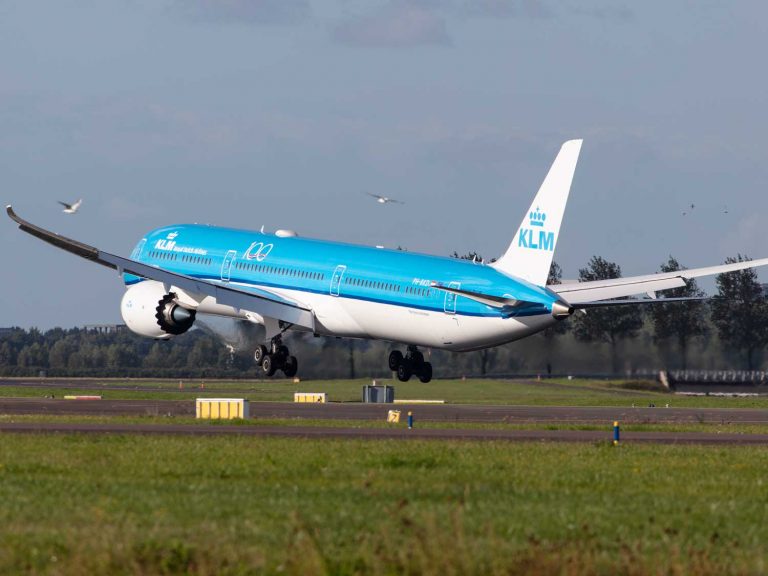
Date:
Metro support successful sustainable flight challenge
Having joined the Air France KLM Martinair Cargo Sustainable Aviation Fuel (SAF) programme in December, we are extremely pleased to support their second sustainable flight challenge, which will generate new insights in accelerating the transition to a more sustainable airline industry.
On the 17th May KLM operated a Boeing 787-10 Dreamliner flight from Amsterdam to Los Angeles and on the 23rd May Air France embarked an Airbus A350-900 from Paris to Atlanta, with both flights carrying Metro client cargo in the most sustainable manner possible.
The Sustainable Flight Challenge seeks new ways to make flying more sustainable, under the SkyTeam alliance umbrella, to encourage member airlines and partners to take part.
The first Sustainable Flight Challenge was organised in 2022, with 17 of the 19 affiliated SkyTeam airlines operate the most sustainable flight possible.
This year’s sustainable flight challenge will see 24 affiliated and non-affiliated partner airlines joining the Challenge to conduct flights in the most sustainable manner possible.
All of the knowledge and insight acquired will be shared with the stakeholders, fostering cooperation and enabling the entire industry to work together towards creating a more sustainable future.
In addition to using Sustainable Aviation Fuel, the KLM and Air France flights implemented a variety of initiatives to boost sustainability, which is of critical importance to our participating, automotive brand customers.
Optimise cargo load
The position of the centre of load gravity has a direct impact on fuel consumption, which means that effective cargo load planning reduces overall aircraft weight, because less fuel is carried, which further reduces emissions.
HVO Trucks
Hydro-treated Vegetable Oil (HVO) fuel reduces carbon footprint.
Sustainable cargo operations
Paperless handling (eAWB), with electric transport in the warehouse and electric tractors to transport cargo to the aircraft.
Weight reduction
Cargo operations use lightweight nets, cardboard board cases, cardboard beams, lightweight unit load devices (ULD), and re-usable covers for cargo pallets.
Eco paperboard pallets
Using cardboard pallets instead of wooden ones generates weight savings of 5 to 8 kilograms per pallet. The pallets are made from recycled paper (94%) and are easy to recycle.
Running the individual elements through the MVT ECO module shows that Flight One to Los Angeles achieved a 37.2% reduction in CO2, while Flight Two to Atlanta achieved a 37.5% reduction in CO2.
Metro is achieving CO2 neutrality by measuring, reporting and offsetting our CO2 emissions and the same ECO technology we use is available ‘free of charge’ to our customers.
The ‘free of charge’ ECO module, that sits in our MVT supply chain platform, monitors the energy emissions, emission costs and CO2 equivalent emissions, of every Metro consignment, by every mode, globally.
To request a demo or discuss your requirements, please EMAIL Simon George, who can outline our proven carbon reduction strategies and the availability of offset projects.
